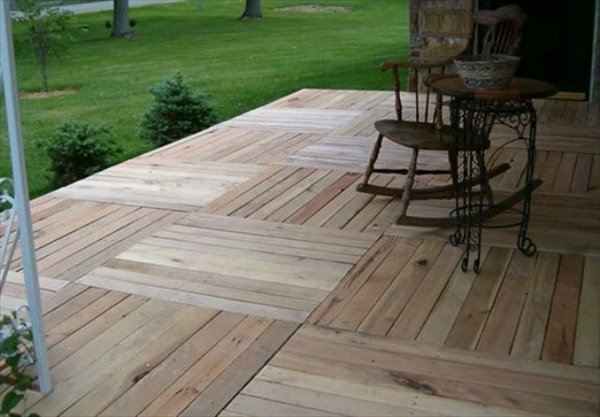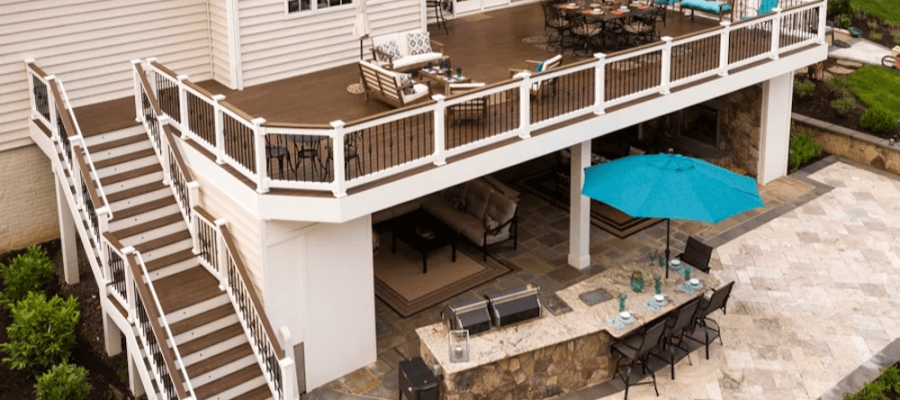How to Clean Decking Naturally: Eco-Friendly…
Discover how to clean decking naturally in Auckland. Use DIY solutions like vinegar & baking…
Auckland is buzzing with a growing focus on sustainable living, and it’s no surprise. With its stunning coastal landscapes, bush-clad hills, and urban sprawl, the city is embracing greener choices to protect its natural beauty for future generations. In 2024, Auckland Council reported a 25% increase in eco-friendly home projects, reflecting a shift toward sustainability among homeowners and builders alike. Your deck, a cherished spot for barbecues in St Heliers or morning coffees in Titirangi, plays a big role in this movement. Traditional decking materials like untreated timber or pressure-treated pine can harm the environment through deforestation, chemical runoff, and short lifespans. Choosing eco-friendly decking reduces your carbon footprint, supports local ecosystems, and aligns with Auckland’s push for a greener future. This blog explores the best sustainable decking options, tailored for Auckland’s unique climate, and highlights how My Homes Decking Experts—part of My Homes Construct Ltd—can help you build a deck that’s kind to both your home and the planet..

Choosing the right material is the heart of a sustainable deck. Auckland’s diverse climates—from humid coastal zones to rainy inland areas—require durable, eco-conscious options. Here are the top choices:
Material Tip: Visit the Auckland Home Show (September 2024) to see these materials in action—touch and compare to find the best fit for your deck and budget.
These eco-friendly materials offer durability, style, and sustainability, perfectly suited for Auckland’s diverse homes and climates.
Enhancing your deck with green features boosts its eco-credentials and functionality. These additions make your Auckland deck both sustainable and enjoyable:
Feature Tip: Pair solar lights with a pergola for shade and extra mounting space, creating a sustainable, stylish deck that shines in Auckland’s outdoor culture.
These features enhance your deck’s eco-friendliness, ensuring it thrives in Auckland’s challenging weather while supporting a greener lifestyle.

Auckland’s climate—humid, rainy, and coastal—demands decking that can withstand the elements. Eco-friendly options must handle these conditions to remain sustainable and practical:
Climate Tip: Check your deck annually after winter—look for discoloration or soft spots, addressing them early to maintain its eco-friendly integrity in Auckland’s weather.
Choosing materials and features that suit Auckland’s climate ensures your sustainable deck remains beautiful and functional for years.
Building a sustainable deck goes beyond materials—it’s about the process. These tips help Auckland homeowners minimize environmental impact while maximizing results:
Build Tip: Ask your builder for a waste management plan—recycling 80% of construction waste is achievable with the right approach, boosting your deck’s eco-credentials.
These pro tips ensure your deck build is as green as the materials, supporting Auckland’s sustainable living ethos.
Is composite decking really eco-friendly?
Yes, when made from recycled plastics and wood fibres, like Ecowood or Futurewood, it reduces waste and avoids toxic chemicals, making it a sustainable choice for Auckland decks, per NZ eco-standards.
How long does sustainable decking last in NZ weather?
Composite and modified wood (e.g., Accoya) last 25–50 years, bamboo 20–25 years, and FSC timber 15–20 years with proper care, outperforming traditional timber in Auckland’s humid, rainy climate, per warranties.
What’s the cost difference between eco and traditional decking?
Eco-friendly options like composite ($50–$70/sqm) or Accoya ($80/sqm) cost 20–40% more than treated pine ($30–$50/sqm), but their longevity and low maintenance offset the initial investment, per 2024 Builderscrack data.
Can I install eco-friendly decking myself?
Yes, for simple projects, but complex installs (e.g., multi-level decks) require professionals for compliance with NZ Building Code Clause B1, especially in Auckland’s regulated areas like Parnell, per local builder advice.
How do I maintain an eco-friendly deck?
Clean with eco-friendly soap and water, apply low-VOC sealants annually (for timber or bamboo), and ensure drainage—My Homes Decking Experts offer maintenance tips to keep your deck sustainable, per Clause E3.
Building a sustainable deck isn’t just good for the planet—it’s smart, future-proof, and perfect for Auckland’s eco-conscious lifestyle. From reducing your carbon footprint with composite or bamboo decking to enhancing home value with FSC-certified timber, the right materials make a difference. Features like solar lights, natural drainage, and low-VOC sealants ensure your deck thrives in Auckland’s humid, rainy climate, while pro tips like local sourcing and repurposing old materials keep the build green. Whether you’re in St Heliers’ coastal breeze or Titirangi’s bushy embrace, a sustainable deck enhances your outdoor living without compromising the environment. My Homes Decking Experts, part of My Homes Construct Ltd, brings expertise and eco-certified craftsmanship to every project, ensuring your deck lasts and cares for the planet.
📞 Contact the Auckland Decking Experts
My Homes Construct Ltd – Decking Division
📞 Call: 022 315 8987
📧 Email: info@myhomesconstruct.co.nz
From recycled timber to modern composites—we build Auckland decks that last and care for the planet.
Ready to create your eco-friendly deck? Contact us today for a free consultation and start your sustainable journey!
Discover how to clean decking naturally in Auckland. Use DIY solutions like vinegar & baking…
Kwila Decking for Auckland Homeowners How Long Does Kwila Decking Last? A Comprehensive Guide for…
How to Build a Deck: A Comprehensive Step-by-Step Guide Introduction Did you know that adding…